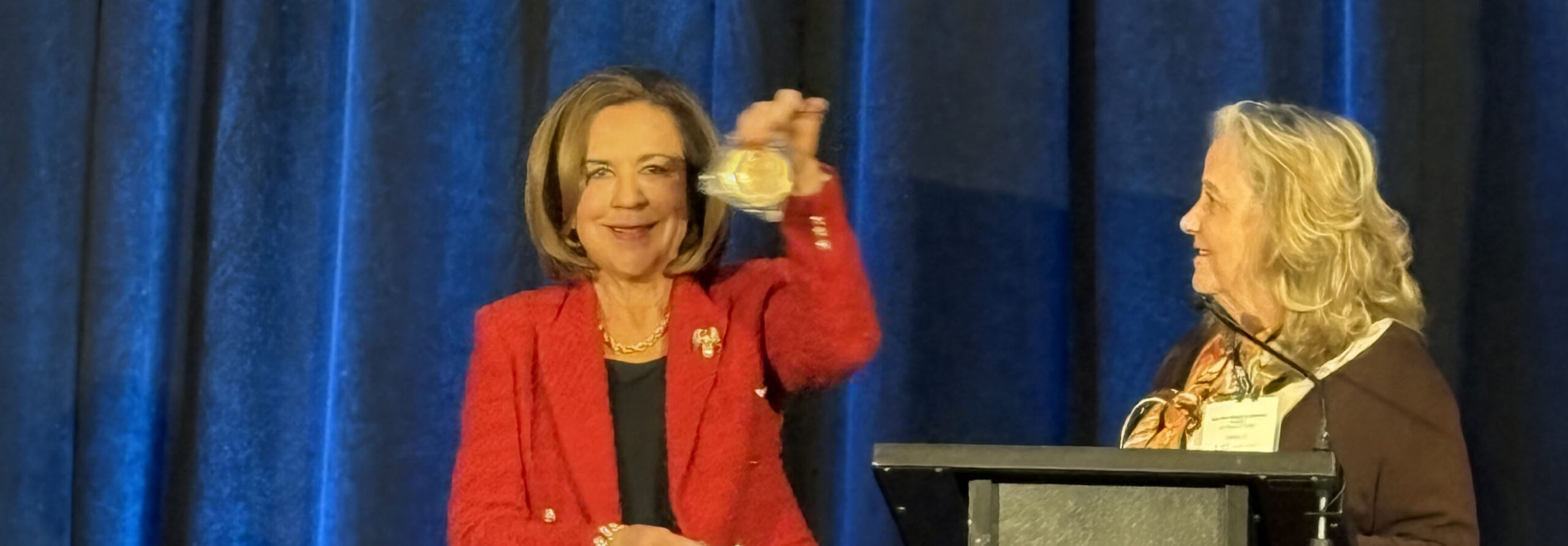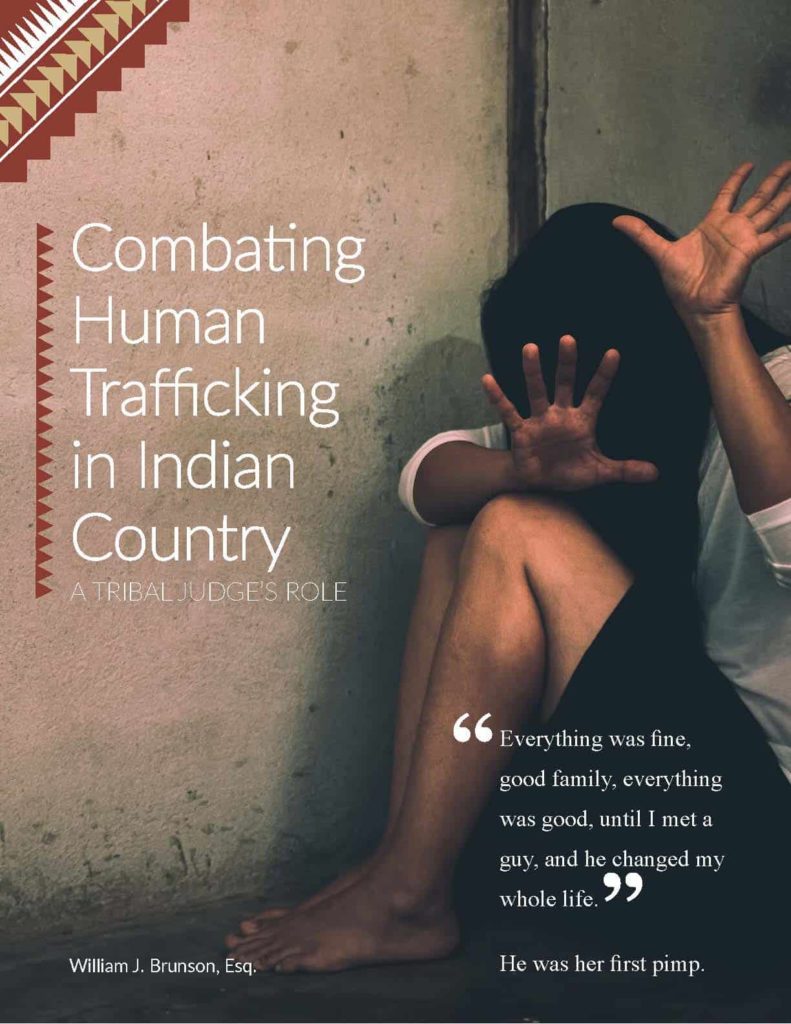Evidence suggests that human trafficking, a modern-day term for slavery that often involves forced sex work, is more prevalent among Native peoples than in the United States population as a whole.
According to the U.S. Department of Justice, Native women are overrepresented in prostitution and they face many of the common risk factors for trafficking, including prior sexual victimization, poverty and homelessness.
The U.S. Government Accountability Office reported that between 2014 and 2016, 27 of 132 tribal law enforcement agencies reported having initiated investigations involving human trafficking.
Yet as of July 2018, few tribes had prosecuted human trafficking cases and even fewer tribal judges had presided over such cases in their courtrooms.
To address the problem, the NJC has drafted the monograph “A Tribal Judge’s Role in Combating Human Trafficking in Indian Country,” which includes advice on warning signs tribal judges should look for that indicate human trafficking may be occurring. Read the full document here.
If a tribal judge suspects human trafficking:
Instruct court staff to provide a card with contact information for the National Human Trafficking Hotline to the suspected victim after court. If there are suspected traffickers in the courtroom, court staff should provide the card in a surreptitious manner.
The judge can also either contact the National Human Trafficking Hotline directly or have the court staff do so. The hotline has four options for reporting:
- Call 888-373-7888. Anti-Trafficking Hotline Advocates are available 24/7 to take reports of potential human trafficking. (NOTE: If it’s not an emergency, the wait times can be relatively long).
- Text the Hotline at 233733. Text “help” or “info.”
- Chat with Anti-Trafficking Hotline Advocates at http://www.humantraffickinghotline.org/chat
- Submit a tip online through the anonymous online reporting form at https://humantraffickinghotline.org/report-trafficking
If the judge suspects that the victim is in immediate danger, the judge or the staff should call 911.

The National Judicial College has awarded Missouri Supreme Court Judge Mary Russell with the Sandra Day O�...

Emeritus Trustee Bill Neukom (left) with former Board of Trustee Chair Edward Blumberg (right) at the NJC 60...

The National Judicial College, the nation’s premier institution for judicial education, announced today t...

The National Judicial College (NJC) is mourning the loss of one of its most prestigious alumni, retired Uni...

As threats to judicial independence intensify across the country, the National Judicial College (NJC) today...
